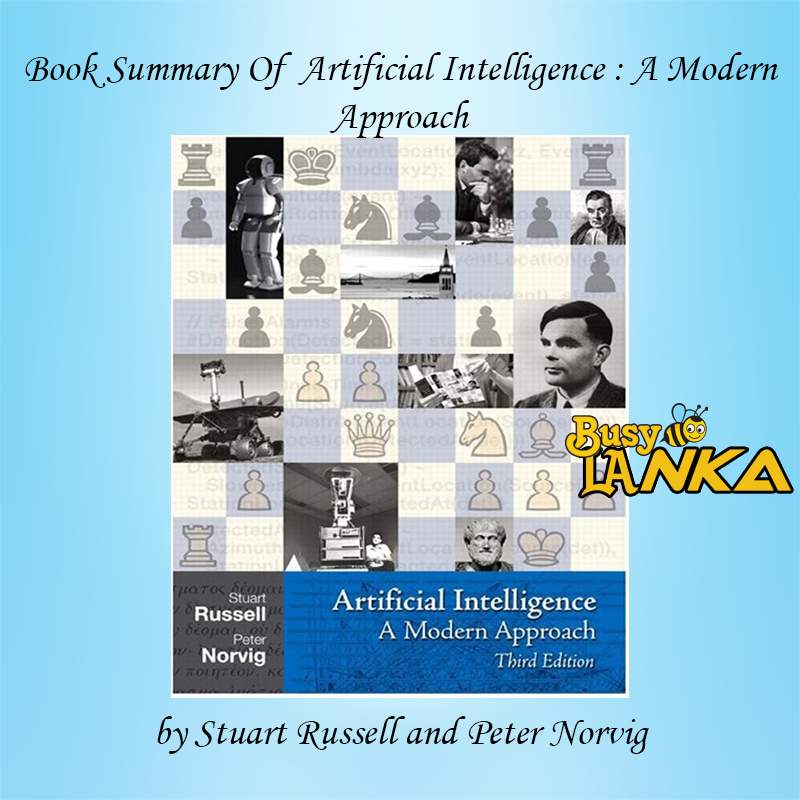“Artificial Intelligence: A Modern Approach” by Stuart Russell and Peter Norvig is a textbook that provides a comprehensive overview of the field of artificial intelligence. The book covers a wide range of topics, from the history of AI to current research and practical applications.
The book is divided into six parts, with each part covering a different aspect of AI. In the first part, the authors introduce the field of AI and its history, including its roots in philosophy, mathematics, and engineering. They also discuss the key challenges and ethical considerations involved in developing AI systems.
In the following parts, the authors cover the fundamental concepts of AI, such as problem-solving, search algorithms, game theory, and knowledge representation. They also explore machine learning, neural networks, and natural language processing.
The book also covers more advanced topics in AI, such as robotics, perception, and decision-making. The authors discuss practical applications of AI, such as computer vision, speech recognition, and autonomous systems, and explore the challenges of creating intelligent systems that can interact with the physical world.
Throughout the book, the authors emphasize the importance of understanding the limitations and challenges of AI, as well as the ethical considerations involved in its development and use. They also discuss the potential impact of AI on society and the economy, and the need for responsible and ethical development of AI systems.
“Artificial Intelligence: A Modern Approach” is a comprehensive and authoritative textbook that provides a thorough introduction to the field of AI. The authors’ expertise and engaging writing style make this book an accessible and informative read for students and practitioners alike.
“Artificial Intelligence: A Modern Approach” has several editions, each updated to reflect new developments and advances in the field. The following is a brief summary of each edition:
- First Edition (1995): This edition is the original publication of the textbook, which quickly became a classic in the field. It covers the basics of AI, including problem-solving, search, knowledge representation, and planning.
- Second Edition (2002): The second edition updates the content of the first edition and adds new material on machine learning, probabilistic reasoning, and robotics. It also includes more detailed discussions on natural language processing and game theory.
- Third Edition (2009): The third edition expands the coverage of the previous editions and includes new material on perception, robotics, and multi-agent systems. It also includes updated discussions on machine learning and natural language processing.
- Fourth Edition (2020): The fourth edition is the most recent update and reflects the latest advances and developments in the field of AI. It includes new chapters on deep learning, probabilistic programming, and AI ethics. It also includes updated discussions on robotics, natural language processing, and machine learning.
Each edition of “Artificial Intelligence: A Modern Approach” builds on the previous edition and expands the coverage of the field. The textbook is a valuable resource for students and practitioners in the field of AI, providing a comprehensive and up-to-date overview of the subject













